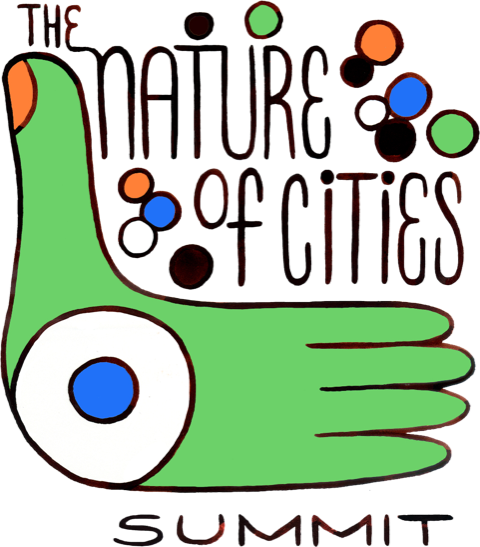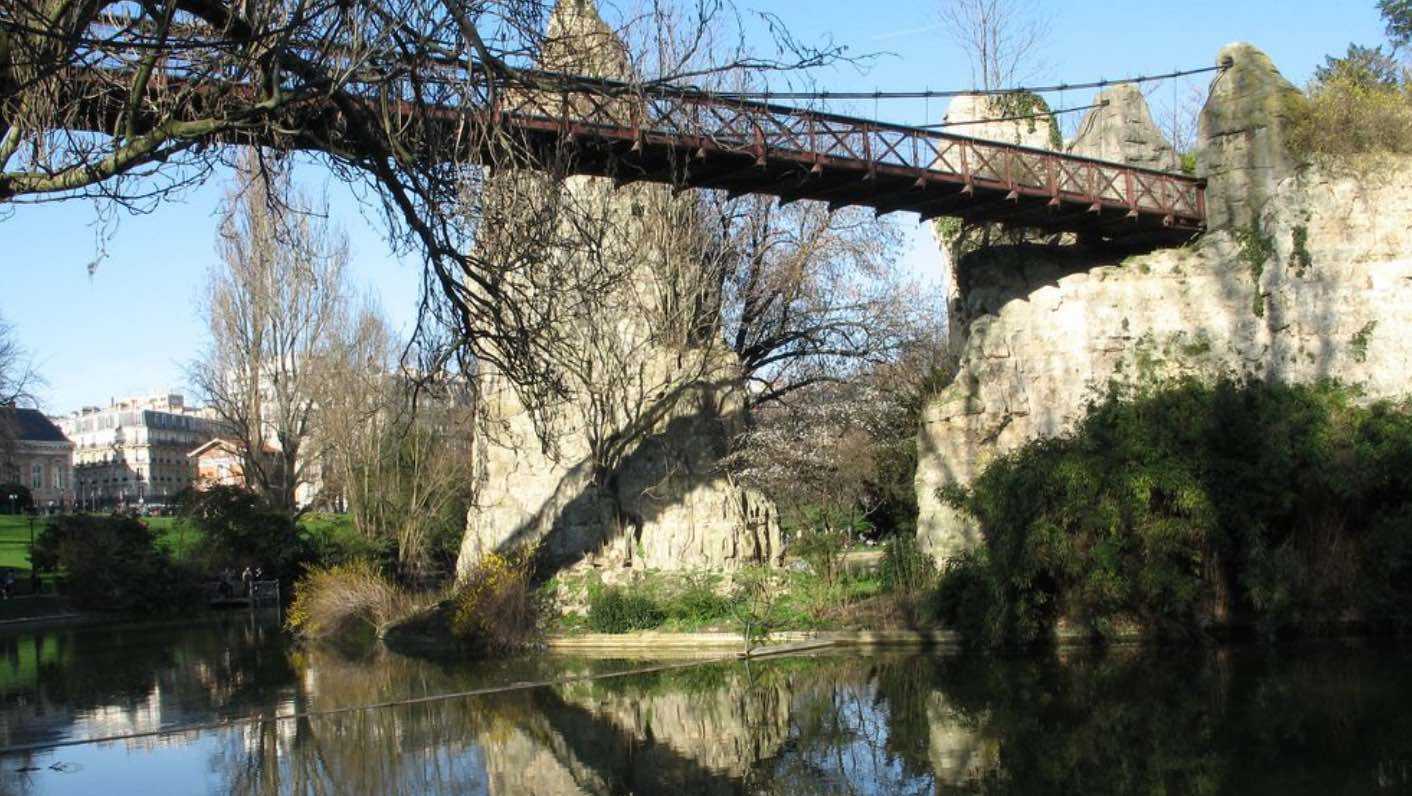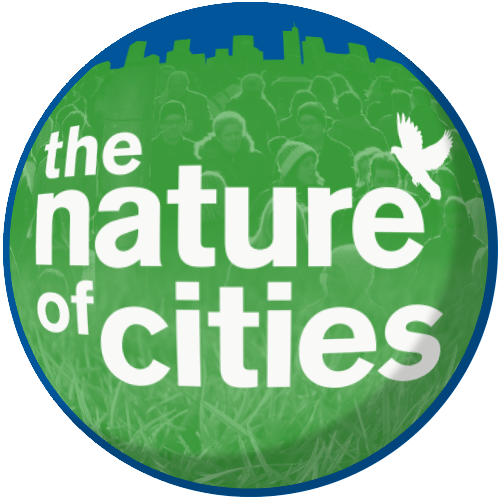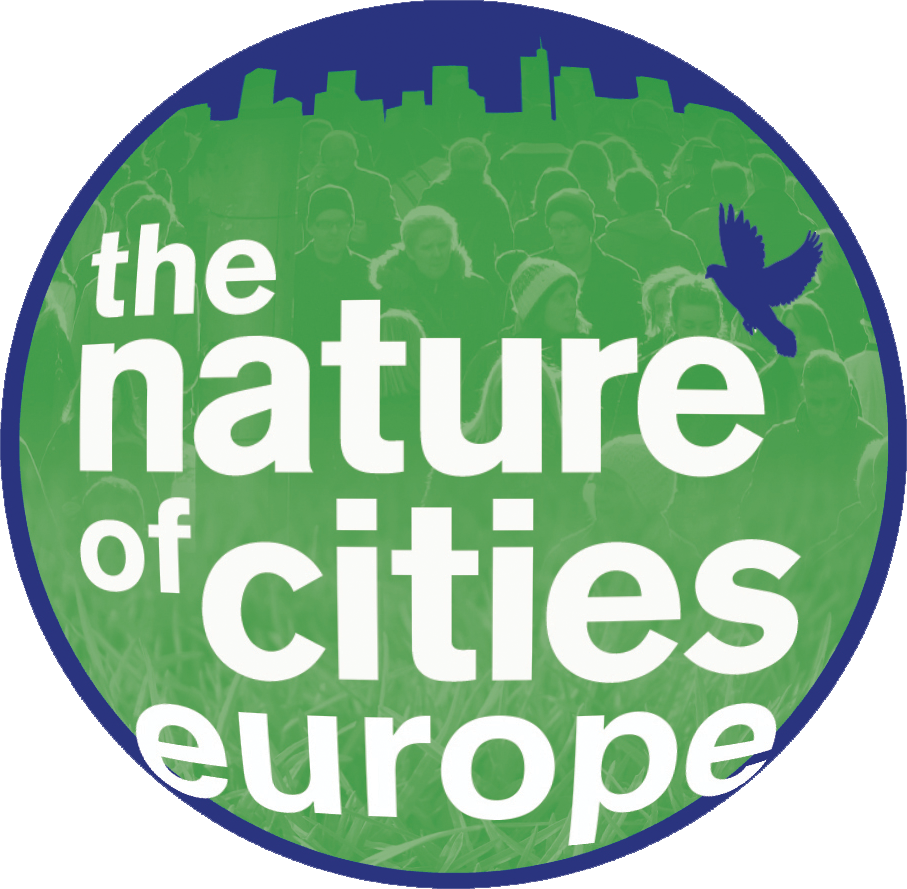Thematic Drivers
 Ready to propose a session or presentation? CLICK HERE—you’ll leave this site to a SurveyMonkey page that will collect your proposal. Below you can read our plans for types of sessions.
Ready to propose a session or presentation? CLICK HERE—you’ll leave this site to a SurveyMonkey page that will collect your proposal. Below you can read our plans for types of sessions.
If you’d like to see the questions you’ll be asked at the proposal submission site, CLICK HERE. (This is just for your review and preparation. If you want to actually submit, click here.)
Click here to see a list of planned field trips. Check back, because more will be added.
 The summit will have five integrated thematic pillars, reflecting the cities we need: justice, livability, health, resilience, and sustainability. Sessions will be organized around these five urban goals, focused on specific local challenges, but always mixing disciplines, points of view, ways of knowing, and modes of action. The key overarching challenge for every session is: How can collaboration inform dialogue and propel better cities?
The summit will have five integrated thematic pillars, reflecting the cities we need: justice, livability, health, resilience, and sustainability. Sessions will be organized around these five urban goals, focused on specific local challenges, but always mixing disciplines, points of view, ways of knowing, and modes of action. The key overarching challenge for every session is: How can collaboration inform dialogue and propel better cities?
![]() Tell us what you’d like to see happen at the Summit: CLICK HERE.
Tell us what you’d like to see happen at the Summit: CLICK HERE.
Note: the official language of the conference is English. We are an international organization devoted to sharing ideas around the world. For better or worse, English is the language mostly likely to be shared by people in our networks. (See a longer version of this statement, in multiple languages, under the ABOUT tab at our website.) The Plenary sessions will have simultaneous French-English translations (some presenters will speak in French also). Some of the smaller, workshop sessions will have French translations, but most will be in English. The field trips will be conducted in French and English.
 Meeting Program
Meeting Program
Meetings of disciplinary groups have formats that are familiar and comfortable to those within the discipline. But the intentionally diverse summit we imagine begs a question: What will such a diverse gathering do together outside of the familiar formats of disciplines? The Summit will emphasize curated encounters among attendees, in workshop settings, problem-solving sessions, roundtable discussions, and interdisciplinary networking cafés.
 Types of Sessions at the Summit
Types of Sessions at the Summit
 SEED SESSIONS … are workshops on ideas of all kinds, conversation among diverse points of view united by a green perspective. Synthetic ideas that find expression in example works or projects will be the focus of interactive workshops and will be the “Seeds” around which small mixed-discipline groups will gather to talk about how they can contribute and different parts of the world can benefit. Seed Sessions can start with short scene-setting talks—perhaps several example of a similar idea—followed by facilitated discussion towards an output deigned by the session organizers. Note takers will capture the ideas.
SEED SESSIONS … are workshops on ideas of all kinds, conversation among diverse points of view united by a green perspective. Synthetic ideas that find expression in example works or projects will be the focus of interactive workshops and will be the “Seeds” around which small mixed-discipline groups will gather to talk about how they can contribute and different parts of the world can benefit. Seed Sessions can start with short scene-setting talks—perhaps several example of a similar idea—followed by facilitated discussion towards an output deigned by the session organizers. Note takers will capture the ideas.
 Note that these sessions are NOT about presenting your work—they are about creating a dialogue and exploring ideas. As such, Seed Sessions start with an idea, work, or example project that is specific enough to have details to discuss, but is open enough to attract diverse participants. Think about what the output of such a session could be, so the session’s discussants can work toward that conclusion. Examples outputs could be: a TNOC-style roundtable published at The Nature of Cities; a call to action; a proposal for a project or work; a publication; or just to explore where the idea leads.
Note that these sessions are NOT about presenting your work—they are about creating a dialogue and exploring ideas. As such, Seed Sessions start with an idea, work, or example project that is specific enough to have details to discuss, but is open enough to attract diverse participants. Think about what the output of such a session could be, so the session’s discussants can work toward that conclusion. Examples outputs could be: a TNOC-style roundtable published at The Nature of Cities; a call to action; a proposal for a project or work; a publication; or just to explore where the idea leads.
 Examples of emerging Seed Sessions include: “Towards a Swimmable Urban River”; “A feminist (gender, generational, caring) and ‘global south’ approach to urban planning”; “What is the research and practice frontier of nature-based solutions? What is next?”; “Bringing fringes together”; “Biophilic Schoolyards and workplaces”; “Revealing, integrating, expanding environmental cultural patterns in cities”; “Build a framework for putting ecology into planning”; “De-gentrifying urban greening”; “Designing landscapes in which both people and nature thrive”; “Art as a collaborative tool”; “The potential of crowd-sourcing green infrastructure in the global south”; and many more.
Examples of emerging Seed Sessions include: “Towards a Swimmable Urban River”; “A feminist (gender, generational, caring) and ‘global south’ approach to urban planning”; “What is the research and practice frontier of nature-based solutions? What is next?”; “Bringing fringes together”; “Biophilic Schoolyards and workplaces”; “Revealing, integrating, expanding environmental cultural patterns in cities”; “Build a framework for putting ecology into planning”; “De-gentrifying urban greening”; “Designing landscapes in which both people and nature thrive”; “Art as a collaborative tool”; “The potential of crowd-sourcing green infrastructure in the global south”; and many more.
You can propose one too.
![]() SKILLS SESSIONS … are for trainings and teaching on specific topics or techniques. Examples including: “Storytelling Techniques”; “Writing for New Audiences”; “Methods of participation and collaboration”. Or, perhaps you have a valuable tool or technique that people would like to learn.
SKILLS SESSIONS … are for trainings and teaching on specific topics or techniques. Examples including: “Storytelling Techniques”; “Writing for New Audiences”; “Methods of participation and collaboration”. Or, perhaps you have a valuable tool or technique that people would like to learn.
![]() PARTNER-LED SESSIONS … provide a more open format to suit partner’s needs. If you are a Partner to the TNOC Summit, you can propose a session with your own format or style, to suit the needs of your group. Want to be a Programming Partner? Write us.
PARTNER-LED SESSIONS … provide a more open format to suit partner’s needs. If you are a Partner to the TNOC Summit, you can propose a session with your own format or style, to suit the needs of your group. Want to be a Programming Partner? Write us.
 MICROTALKS … meld communication and dialogue, and are 2-minute presentations and can include 1 slide. Exciting! All presenters will be sitting in a circle, with the audience sitting outside the circle. After all of the presentations, the entire group (presenters and audience) will participate in an open discussion, in the style of a Fishbowl*. A summary of each talk—up to 250 words—will be published as part of the Summit Proceedings. Two-Minute talks are a special and exciting format. But please make to commit to the two minute limit, to be fair to other presenters, and to leave time for the most important part: dialogue.
MICROTALKS … meld communication and dialogue, and are 2-minute presentations and can include 1 slide. Exciting! All presenters will be sitting in a circle, with the audience sitting outside the circle. After all of the presentations, the entire group (presenters and audience) will participate in an open discussion, in the style of a Fishbowl*. A summary of each talk—up to 250 words—will be published as part of the Summit Proceedings. Two-Minute talks are a special and exciting format. But please make to commit to the two minute limit, to be fair to other presenters, and to leave time for the most important part: dialogue.
 MicroTalk presentations will be grouped together into one of the five pillar themes of the Summit (resilience, sustainability, health, livability, justice), without reference to discipline. That is, talks will be gathered into mixed points of view within the pillars.
MicroTalk presentations will be grouped together into one of the five pillar themes of the Summit (resilience, sustainability, health, livability, justice), without reference to discipline. That is, talks will be gathered into mixed points of view within the pillars.
Worried about a 2- minute talk. Don’t be—it’s a really dynamic format, with lots of potential for exchange of ideas.
* Fishbowls are a discussion format in which people are gathered in a circle facing the middle. In the middle are 5 chairs, 1 of which is always empty. Only the 4 people in the middle may speak, but anyone at any time can take the empty chair, at which 1 person must depart, making a new empty chair. The 4 who begin in the middle are prompted & start to discuss: “What did you hear in the talks that moved or affected you?” The conversation proceeds where it will.
![]() POSTERS … are, well, posters, and will be presented in the Networking Cafes on the same theme. A summary of each poster—up to 250 words—will be published as part of the Summit Proceedings.
POSTERS … are, well, posters, and will be presented in the Networking Cafes on the same theme. A summary of each poster—up to 250 words—will be published as part of the Summit Proceedings.
Ready to propose a session or presentation? Click here
![]() NETWORKING CAFES: Networking Cafes are a 75-minute (TBD) periods to gather in a cafe-like setting, with people interested in one of the five thematic pillars: resilience, sustainability, livability, health, justice. There will be five such Cafes, one for each pillar, and people will visit that cafe because they are interested in meeting others with that interest. There will be light food, coffee and tea, drinks, wine, and beer. The idea is to gather and converse. (We may consider activities designed to facilitate meeting people you don’t know.)
NETWORKING CAFES: Networking Cafes are a 75-minute (TBD) periods to gather in a cafe-like setting, with people interested in one of the five thematic pillars: resilience, sustainability, livability, health, justice. There will be five such Cafes, one for each pillar, and people will visit that cafe because they are interested in meeting others with that interest. There will be light food, coffee and tea, drinks, wine, and beer. The idea is to gather and converse. (We may consider activities designed to facilitate meeting people you don’t know.)
Posters in a theme will be available at the Café, attended by the poster’s author.
There will be several soap boxes around the room. At any moment, anyone can mount a soapbox. A person responsible for monitoring the soapboxes will make a sound (e.g., a bell), and everyone must stop to listen for 1-minute to the person making a statement, proposition, or request. For example: “I want to create a project about <something>; come and talk with me about it”. After one minute, the person dismounts the soapbox and the room returns to conversation.
Dialogues (not really a traditional keynote) will model a conversational spirit across ways of knowing and mods of action. They will focus on pairs of short talks from different disciplines, followed by the two interviewing each other onstage. For example, an Ecologist and an Artist each gives a 6 minute talk, and have a moderated conversation. Other pairings include: Planner and Activist; Social Scientist and Climate Scientist; Urban Farmer and … You get the idea. These pairing are being actively explored now.
Special Events
Several special events are planned:
Farm to table dinner: Dinner at a local farm-to-table restaurant. Short talks on urban food and the “farm to table” model by the chef, an urban farmer who supplies the restaurant, and a scientist, followed by conversations, wine, and dinner at the tables. Very limited seating. (Special fee.)
Summit party: Light food, drinks, dancing and many small idiosyncratic spaces to hang out and talk, at the hip joint: Le Comptoir General in Paris.
Field Trips: A variety of trip around Paris, organized by ARB-IAU (formerly Nature Parif), Versailles, and others; and led by various practitioners. To see the list, CLICK HERE.
Daily Schedule
![]() The program details are still in development, but the flow goes something like this:
The program details are still in development, but the flow goes something like this:
Day One, 4 June 2019
Welcome by Pénélope Komitès (Deputy Mayor of Paris in charge of Green Spaces, Nature in the City, Biodiversity, Urban Agriculture and Funeral Business)
Morning: Plenary Dialogues
Afternoon: Seed Sessions, Skills Sessions, MicroTalks, Networking cafes
Evening: Farm to Table Dinner Special Event (limited seating)
Day Two, 5 June
Morning: Plenary Dialogues
Afternoon: Seed Sessions, Skills Sessions, MicroTalks, Networking cafes
Evening: Gala / Party
Day Three, 6 June
Morning: Plenary Dialogues
Afternoon: Afternoon: Seed Sessions, Skills Sessions, MicroTalks
Closing Plenary
Evening: Farm to Table Dinner Special Event (limited seating)
Day Four, 7 June
Field trips around Paris, organized by ARB idF and others, and a public event.
Block schedule (draft, subject to change)
Getting Involved as a Partner
Partners will organize events or their own design. Are you interested in organizing one? Contact us at TNOCSummit@thenatureofcities.eu
Can I propose a session?
Yes. Proposals are open now. Check the link at the top of this page.
Participant List
Coming in April.
Detailed Schedule
Coming soon.



 The Nature of Cities
The Nature of Cities The Nature of Cities — Europe
The Nature of Cities — Europe
